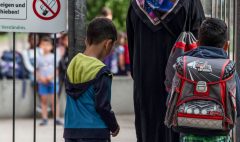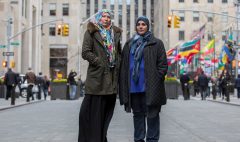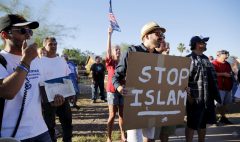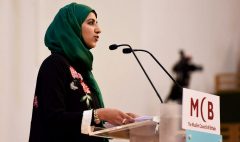Inter-faith Dialogue: Muslims, Jews and Women in America
May 25, 2017 2023-08-13 12:44Inter-faith Dialogue: Muslims, Jews and Women in America
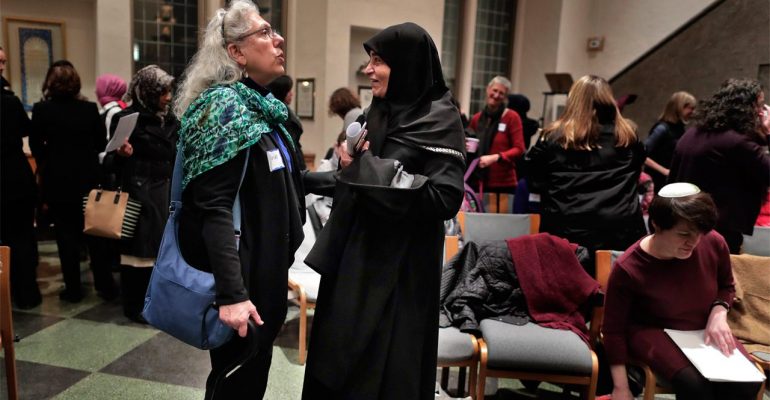
Inter-faith Dialogue: Muslims, Jews and Women in America
As President Donald Trump engages in his own, idiosyncratic kind of religious and cultural diplomacy in Saudi Arabia and Israel, back in the United States efforts by faith groups to understand each other better seem to be gathering pace. Some of the most eye-catching projects bring together Muslims and Jews, and their organizers are now more likely to be female than male. Among their long list of motivations, many say they want to counter the inter-communal tension which started rising during America’s presidential election campaign and grew worse after the result.
Last month, for example, there were some unusual celebrations of the Jewish feast of Passover in New York. A mosque played host to 200 women and men as they gathered for a seder, the ritual dinner which ushers in the eight-day Passover commemoration. It was organized by the Muslim-Jewish Solidarity Committee, a group which also aims to raise awareness of social problems like poverty and food insecurity. Next month, during the Ramadan fast, it has invited Muslim supporters to gather for an Iftar (a communal meal at sundown) in a synagogue. Such events send a powerful message to the world that once-antagonistic groups are putting differences aside, says Michelle Koch, director of the Committee. The current “toxic climate” in the United States makes such joint rituals all the more important, she argues.
Across the country, hate crimes have prompted some generous responses. For example, when a mosque in Florida was torched by arsonists, many of the contributors to a repair fund were Jewish. And when Jewish headstones were vandalized in Missouri, Muslims chipped in a total of $125,000 to repair the damage. Although it is secular in origin, the Women’s March movement, which denounces the new administration as inimical to female interests, has offered a forum in which some religiously committed women on the ideological left can collaborate. Participants have included Sharon Brous, a New York rabbi; Linda Sarsour, an Arab-American political activist, and a religious sister on the radical edge of the Catholic church, Simone Campbell.
Reuven Firestone, a (male) history professor at Hebrew Union College in Los Angeles, says there are reasons for the female preponderance in inter-faith projects. Male religious leaders are often suspicious of inter-confessional dialogue, while their female counterparts are bolder in reaching out beyond the boundaries of their own group. In his home city, there is a self-described Muslim-Jewish Partnership for Change, also known as New Ground, which says it “works to connect and empower Jewish and Muslim change-makers in America.” All the executive staff are women.
An even more explicitly female initiative is the Sisterhood of Salaam Shalom, a New York-based non-profit organization which invites women to help overcome Muslim-Jewish suspicions. Before the presidential race, the project had around 50 local groups scattered across country; since the election, the number has surged to 160. Sheryl Olitzky, executive director of the Sisterhood, says this success confirms that “women navigate the world through relationships and bonds, men through rules and regulations.” … In any Muslim-Jewish conversation, even one that focuses on relatively innocuous topics such as rituals and families, the elephant in the room is the Israeli-Palestinian question. As Mr Firestone recalls, several initiatives in this area foundered about 20 years ago because the Jewish participants wanted their opposite numbers to begin by accepting the validity of Israel as a Jewish state, while the Muslims wanted their interlocutors to renounce Zionism.
Source: The Economist


